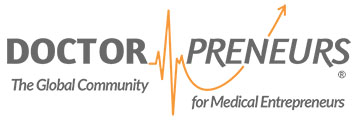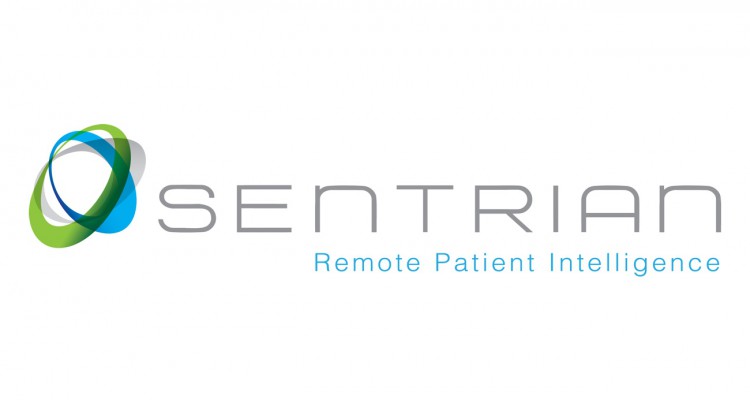Physician, physiologist, serial entrepreneur, public speaker, and recently t he mind behind The End of Ageing TedxLondonSalon, Dr Jack Kreindler has an impressive track record. I interviewed Jack at his ‘Centre for Health and Human Performance’ lab on Harley Street, an underground physiology and sports medicine boutique with a spa-like feel – filled with bikes, cardio machines and high-spec monitoring equipment.
he mind behind The End of Ageing TedxLondonSalon, Dr Jack Kreindler has an impressive track record. I interviewed Jack at his ‘Centre for Health and Human Performance’ lab on Harley Street, an underground physiology and sports medicine boutique with a spa-like feel – filled with bikes, cardio machines and high-spec monitoring equipment.
CHHP is for those curious about their physiology – whether to optimise self-management of a chronic condition, enable elite sports performance or improve everyday functioning. I’m told the CHHP team treat the very sickest patients and athletes alike, training them to achieve their best possible physiological outcomes.
Sentrian Inc., a CHHP spin-out, is one of Jack’s latest technology projects. Sentrian is a cloud-based Remote Patient Intelligence company that aims to leverage the biosensor and machine learning revolutions to detect deterioration in patients’ health, before they become acutely unwell.
You describe yourself as a “physician and physiologist”, using data to improve healthcare for those with complex chronic conditions. At the moment, you’re focused on rolling out projects in the US. Is it because you’ve faced barriers when implementing innovations in the UK?
As I see it, California especially has three key ingredients:
1. A critical mass of “geeks” with drive and vision to change the world.
2. A critical mass of money to fund the wild ideas of Number One.
3. A critical mass of innovative healthcare payers and providers that are all in competition with each other.
Currently, the UK is behind California in these three areas. Firstly, there is perhaps a sentiment in the UK that entrepreneurial doctors are not focused and/or are selling themselves out to the private sector. Whereas, at Stanford, it might be normal for an entrepreneurially-minded doctor to be running three start-ups, at least! Secondly, it’s harder to find the money required with very early stage ideas. Finally, there is only one client in the UK to professionally sell to – the NHS. If we conquer these three barriers, there’s potential for the UK to be the best island of medical intelligence and the fastest to test, iterate and scale innovation across a whole healthcare system.
There’s potential for the UK to be the best island of medical intelligence and the fastest to test, iterate and scale innovation across a whole healthcare system.
You spent a number of years working as an Emergency Medicine doctor but have mentioned in the past that you “knew your destiny wasn’t in the NHS”. How did you know when it was the right moment to venture “off-piste”?
I’ve been venturing “off-piste” from Day One of medical school! Whilst I acknowledge that well-accepted norms of practice are there to ensure safety, efficacy and a scalable health service, I always question these norms and I’m constantly thinking of ways to improve or disrupt them. In this respect I much prefer “off-piste”. I was lucky to have mentors that encouraged me to explore these things and pursue innovation alongside clinical practice.
Being an entrepreneur, at times, and especially in the early stages, is notoriously a stressful experience. With your insight into how humans behave and react physiologically under highly stressful conditions and your own experience as an entrepreneur, what tips do you have for entrepreneurs to reduce the impact of entrepreneurship on their own health?
Good question. Two words: resilience and adaptation.
A good functioning physiology can withstand stress and adapt to a stressful environment. Once adapted, it’s able to be more resilient the next time. In the world of entrepreneurship and innovation, you have to be resilient as well as persistent and passionate about what you want to achieve. For me, what I want to achieve is not financial gain personally, but to help improve outcomes for less cost and make the experience of healthcare more fulfilling for doctors and patients alike. Without money as your metric it sometimes leaves you very exposed from a financial security perspective. This can hurt. But a good physiology heals quickly even when it breaks, as does a good entrepreneur.
But a good physiology heals quickly, even when it breaks, as does a good entrepreneur.
There are regulatory challenges associated with technological innovation, including the need to test in the field and see whether interventions work and are safe. How do you suggest entrepreneurs tackle these challenges?
It takes nine months to make a baby. I consider that trying to accelerate technology that helps biology or health system faster than the biology or the system allows poses hazards.
Regulation has to embrace the kind of evidence technological engineering requires rather than sticking to ways of measuring success using pharmacological or surgical techniques, which is really a different universe. The FDA, NICE and other health and safety regulatory bodies, in my view, need massive overhauling if they’re to keep pace with exponential change. If they don’t, my fear is that people will simply bypass systems in favour of unscrutinised, personalised medicine. Do it right, and we can accelerate efficiency and safety within an industry, just like we do with innovation in aviation which is currently much safer and more efficient than healthcare!
Do it right, and we can accelerate efficiency and safety within an industry, just like we do with innovation in aviation which is currently much safer and more efficient than healthcare!
Sentrian is focused on improving the healthcare of those suffering with complex chronic illness using machine learning and biosensors. Traditionally, those with chronic diseases have been a hard-to-reach group and less interested in engaging with healthcare interventions than their “worried well” counterparts. How at Sentrian have you addressed this problem?
One thing we learned in trials with Sentrian is that those with complex chronic disease, unlike triathletes who love their data, is that the sick do not want to see graphs of their inevitable decline. They’re worried about people watching them at home and are hassled by reminders, false alarms and phone-calls when they feel okay, and don’t want to burden anyone. However, explaining to people that their contributions are helping thousands of others like them to live healthier and happier at home, and also helping their loved ones and professional caregivers to make meaningful contact with relevant advice and/or change interventions just when they need it, can change a patient’s view of remote monitoring. This is why at Sentrian, we call it Remote Patient “Intelligence”, not just “Monitoring”.
We call it “Remote Patient ‘Intelligence”, not just “Monitoring”
If you had one week for the medical school curriculum based on your vision for the future and desire to improve healthcare, what would you put on the syllabus for that week?
It’s funny you say that, I’ve just been asked to do that for the groundbreaking surgeon Shafi Ahmed who is introducing a new curriculum at a London medical school for next year. The balance between practicing what is best today and innovating what is better for tomorrow without resting on laurels or being consumed by hubris is vital. We must remember that in 100 years time we will be laughing at what we do today. Understanding exponentially advancing technology, like computer medical genomics and real world data that drives decision-making for personalisation of care, might make that happen 50 years from now, maybe even 20, we just need to go do it.

